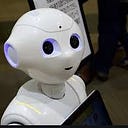Member-only story
How MLOps Relies on Experiment Tracking, Feature Stores, and Logging for Model Excellence
Introduction: A Real-World Perspective
Imagine a team of data scientists working tirelessly on a machine learning (ML) project to predict customer churn for a subscription-based business. They develop multiple models, experiment with hundreds of hyperparameters, and use varied datasets.
A few weeks later, the best-performing model is deployed, but its performance starts to degrade in production. When the team investigates, they realize that they cannot trace back the experiment parameters, dataset versions, or feature engineering pipeline that led to the original model.
This is where MLOps, with its pillars of experiment tracking, feature stores, and logging systems, comes to the rescue. These tools ensure traceability, reproducibility, and monitoring of the entire ML lifecycle, making it possible to debug issues, optimize workflows, and maintain consistent model performance in production.
Key Components of MLOps: Experiment Tracking, Feature Stores, and Logging
1. Experiment Tracking
Experiment tracking involves systematically recording the details of ML experiments, such as…
